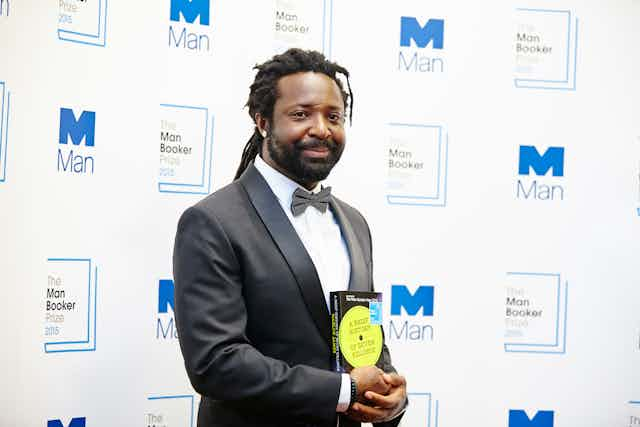The announcement of the Man Booker Prize – awarded to the best novel of the year written in English – is always bound to be big news. This year, the levels of anticipation were especially high. It is only the second year that the award has been open to the entire English-speaking world: not only Britain, Ireland and the Commonwealth, as before, but also the United States.
One question hung in the air: would a US novelist win for the first time? Two acclaimed Americans – the much-loved Anne Tyler and New York novelist Hanya Yanagihara – were featured on the short list. Indeed, Yanagihara’s A Little Life – a captivating story about male friendship and overcoming severe psychological damage – was this year’s firm favourite.

As it turned out, the Man Booker Prize – awarded in the splendour of London’s Guildhall – once again made literary history. The prize was given to Jamaican novelist Marlon James: the first writer from his island nation ever to be short-listed, and then to win.
James won with his third novel, A Brief History of Seven Killings. A dark, colossal, at once mythic and filmic evocation of 1970s Jamaica, James’ book explores the ramifying afterlife of a group of would-be assassins, who make a failed attempt on the life of reggae artist Bob Marley – known throughout the book only as “The Singer”.
Creating new ‘Englishes’
It is the first novel, to my knowledge, to run to an implicit soundtrack – Marley’s reggae music. In his off-the-cuff and charming thank you speech, James unsurprisingly gave a shout-out to the powerful “poetry” of this music.
The author paid tribute to the mythic giants of Booker prize history – Salman Rushdie, Ben Okri, Hilary Mantel, and J G Farrell – and to the classical English writers George Eliot and Charles Dickens, who shaped the imagination of his “colonial home”. James also expressed his gratitude to the plucky Caribbean publishers Akashic Books, who first published him; to the Caribbean poet Mervyn Morris; and to his father, who first pointed out to him how many ways there are to tell a novel, in part through Coleridge and Shakespeare.
For all of us passionate about the rude good health of Anglophone world literature – and the novel in English, in particular – this recognition of James’ bold artistry and linguistic inventiveness, which was reflected in his words from the podium, are encouraging and inspirational.

As the chairman of the 2015 Man Booker judges Michael Wood observed in his speech, James and his fellow shortlisted writers (who also included the Britons Tom McCarthy and Sunjeev Sahota, and the Nigerian Chingozie Obioma), had taken the five judges on a remarkable tour through diverse spaces and myriad worlds of words.
Each of the novelists has shown a remarkable inventiveness with the English language. Wood noted that they created new “Englishes” that remade and reshaped the language, mixing it with “snatches of other tongues and books”. Each one of the novels had revealed to the five judges new ways of doing things with words. Across the great slew of brazenly creative rewriting represented by the six books, these authors demonstrated that, at the end of the day – as James’ admired poet Mervyn Morris puts it – “is English we speaking”.

